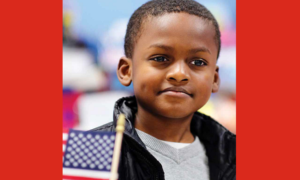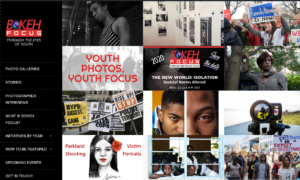Barack Obama wrote three books rife with praise for his mother’s character, intellectuality and accomplishments – yet he never mentioned that she was once a pregnant, unwed 18-year-old. Although eugenicist lobbies like the National Campaign to Prevent Teen and Unplanned Pregnancy, the Urban Institute and Advocates for Youth would have stigmatized him as a “social cost,” solely because of his mother’s young age and his father’s African race, Obama doesn’t consider his demographic origins a curse.
In Dreams from My Father, the youthful Obama enjoyed and respected young people. He praised teenage mothers’ leadership in his community activism against Chicago’s corruption. He amiably chatted with city “boys who hung out on the stoop.” He absorbed the insights provided by teen moms and former gang kids in his church. He bitterly resented the “frightening simplicities,” “suffocating implications,” and racialized code words that powerful white people used to disguise their real names (“Paranoid. Militant. Violent. Nigger”) for rebellious young black men.
Then, midway through Dreams, Obama’s attitude toward young people reverses. Jargon like “at-risk teens” and “youth violence” appears. By 1987, he wrote, kids had turned a “blind and ugly corner.” Gotten harder. Trigger-happy. Defied their elders’ values and authority.
But it was Obama who had changed.
In Audacity of Hope (2005) and Change We Can Believe In (2008), the middle-aged Obama eyeing the presidency no longer respects young people as allies, or even individuals. Now, they’re problems. He deplores “teenagers … hanging around on street corners.” He blames teen mothers as the main cause of America’s poverty and family ills. He disparages young black men as “a generation that does not value life.”
After pages of intellectual treatises on law, health, global affairs, politics, religion and economics, Obama’s crude slogans on youth and social issues sound like they’re cribbed from lobbyist pamphlets. He singles out “destructive youth violence,” even as FBI reports show youths cause only a small and declining fraction of violent crime. He exhorts parents to “turn off the TV” and “put away the video games” and frets over largely mythical Internet predators, but ignores the hundreds of thousands of substantiated cases of violent and sexual abuse of children by their parents every year. He bemoans fictional media “messages,” rap lyrics, and the “coarsening of the culture” more than genuine crises like AIDS, family violence and drug addiction.
Obama campaigned on themes of change, tolerance and unity, yet he denies today’s teenage mothers the same respect he accords his own mother. He urges us to transcend racial politics, yet he perpetuates racialized code words like “youth violence” and “teen pregnancy” that invoke primitive fears of blacks, immigrants and poor people. He never apologized for stereotyping an entire generation of black youth as murderous.
Obama envisions one America – black/white, red/blue, religious/secular. Yet, he continues the unwritten hierarchy of tolerance: those demographics with power like evangelical Christians and baby boomers deserve respect, while powerless groups such as youth can be exploited when needed to forge illusions of unity and concern.
Perhaps, then, I’m optimistic to invoke the sole context in which Obama respects youth. “What gives me the most hope is the next generation – the young people whose attitudes and openness to change have already made history in this election,” Obama says in Change. True; exit polls showed 66 percent of 18- to 29-year-olds voted for him, as did 68 percent of the 5 million students voting in school mock elections – a mammoth, 35 percentage-point “generation gap,” compared with their evenly split elders.
Obama owes his election to young people. Perhaps, then, he is keenly aware that ingratiating himself with aging constituencies by treating the young as political punching bags, as his chief of staff Rahm Emmanuel and former President Bill Clinton did, would represent unconscionable betrayal.
Today’s older generation does not embody superior morality or wisdom, any more than one race or religion does. Quite the contrary. Middle-aged drug abuse, crime and anti-social “ownership society” values menace America far more than do “at-risk youth.” Burgeoning public debt, underfunded schools, long-term corporate bailout liabilities and union-management conspiracies to slash younger workers’ wages and benefits represent robberies perpetrated by older Americans more heinous than gun-toting street thugs.
Politicians’ bully-pulpit preaching and institutions’ increasingly atrocious sound-bite “studies” blaming fictional media images for teenagers’ misbehaviors represent dangerous distractions from serious, real-life issues that leaders must confront. Obama, even if he voiced its platitudes to get elected, surely knows America can’t continue indulging this dumbed-down social policy charade.
Young Obama, the one I voted for, articulated searing questions about America’s racial and generational rifts. Will President Obama exploit these rifts as past presidents have, or will he fight for a new equity?
Mike Males is senior researcher for the Center on Juvenile and Criminal Justice and http://www.YouthFacts.org.






























